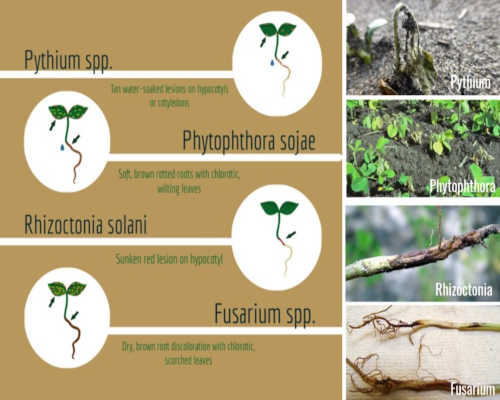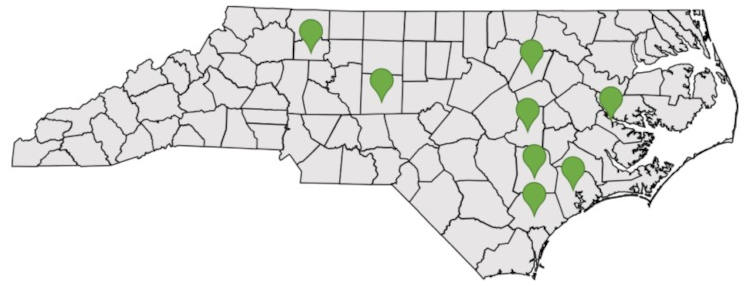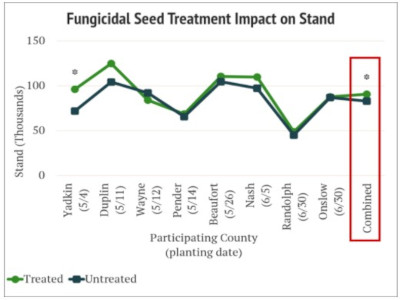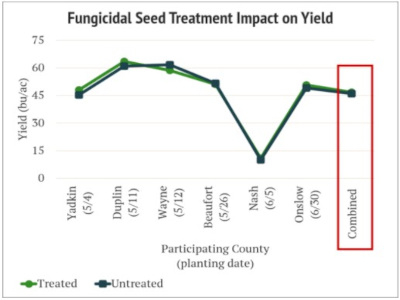As many growers across NC shift to earlier planting dates, the necessity of fungicidal seed treatments (FST) to protect soybean yield at earlier planting dates arises.
FSTs can be used to protect seedlings from pathogens, some of which are more problematic in cool, wet conditions encountered earlier in the planting season. Common seedling diseases include Pythium, Phytophthora, Rhizoctonia, and Fusarium. The problem is it’s hard to know if seed/seedling disease will be a big problem from one year to the next, but in general, Phytophthora and Rhizoctonia are favored by warm, wet soils while Fusarium and Pythium are favored by cool, wet soils.

To evaluate the impact of FSTs on stand and yield, on-farm trials were implemented by County Extension Agents. On-Farm Trials are a new component of the NC Soybean Research Program, aimed at getting large plot data, using grower-scale equipment, to complement small-plot research that is being conducted by the NC State Soybean Extension program.
A fungicide seed treatment, Vibrance Trio (which has three active ingredients – fludioxonil, sedaxane, and mefenoxam), was compared to an untreated control in strip trials at eight locations across the state. The variety used in the strip trials was either AG52X9 or AG56X8, both maturity group Vs that are susceptible to Phytophthora. While the goal of this project was to evaluate the seed treatment at an earlier planting date, due to weather and delays getting seed delivered (thanks Covid), the strip trails ended up being planted from early May to late June. Stand count data was collected at V2/V3 and yield data was collected at the completion of the growing season.

Locations of the 2020 Fungicide Seed Treatment On Farm Trials.
First, we’ll look at the impact the FST had on plant stand. At the Yadkin County locations (which had the earliest planting date, May 4) we saw a significant impact in stand between the treated and untreated strips (as indicated by an asterisk). This was the only location where there was a significant impact on stand, but we saw numerical differences across other locations and when all data was combined across locations, there was a significant impact on stand. This suggests a FST can help protect stand, but is more likely to have an impact at earlier planting dates.

But the real question is how does this translate to yield? Well, in all six locations where yield data was collected, there was no significant impact between the treated stirps and the untreated strips. There was also no significance difference in yield when data was combined across all sites. This suggests a FST does not impact soybean yield in NC in mid-May or later planting dates. While stand was protected at some locations, the fact that this doesn’t translate to an increase in yield is likely because more seeds were planted than is necessary to optimize yield.

Click here to see more...